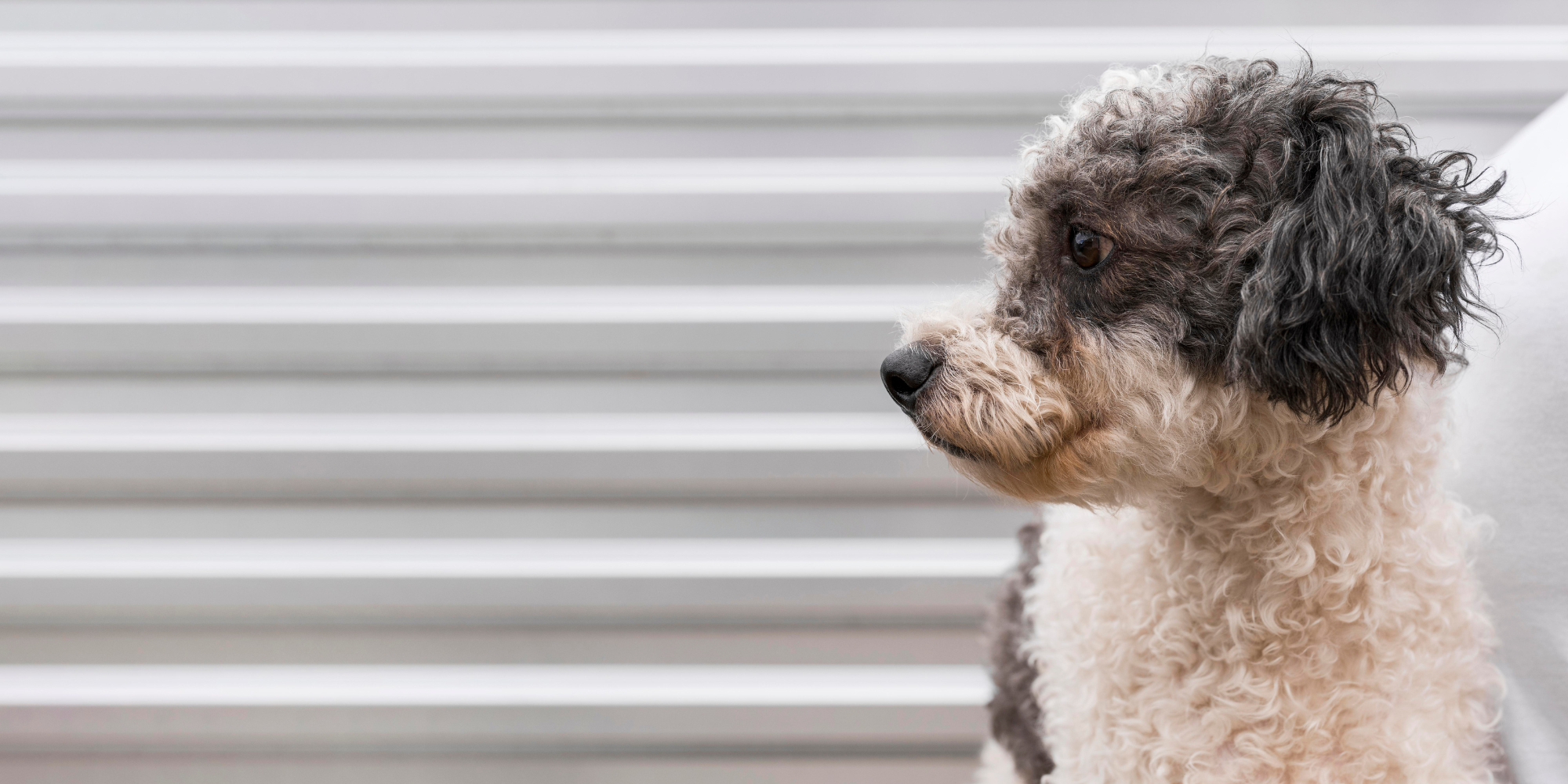Introduction
Best Diet for Portuguese Water Dog focuses on balanced, high-quality nutrition.
- These active dogs need high-quality nutrition to fuel their energy
- Their diet should include proteins, fats, carbs, vitamins, and minerals
- Proper nutrition supports their immune system and overall well-being
- Feeding the right foods can help prevent common health issues
- Here are the best nutrition tips and food recommendations for your dog
1. Understanding Nutritional Needs
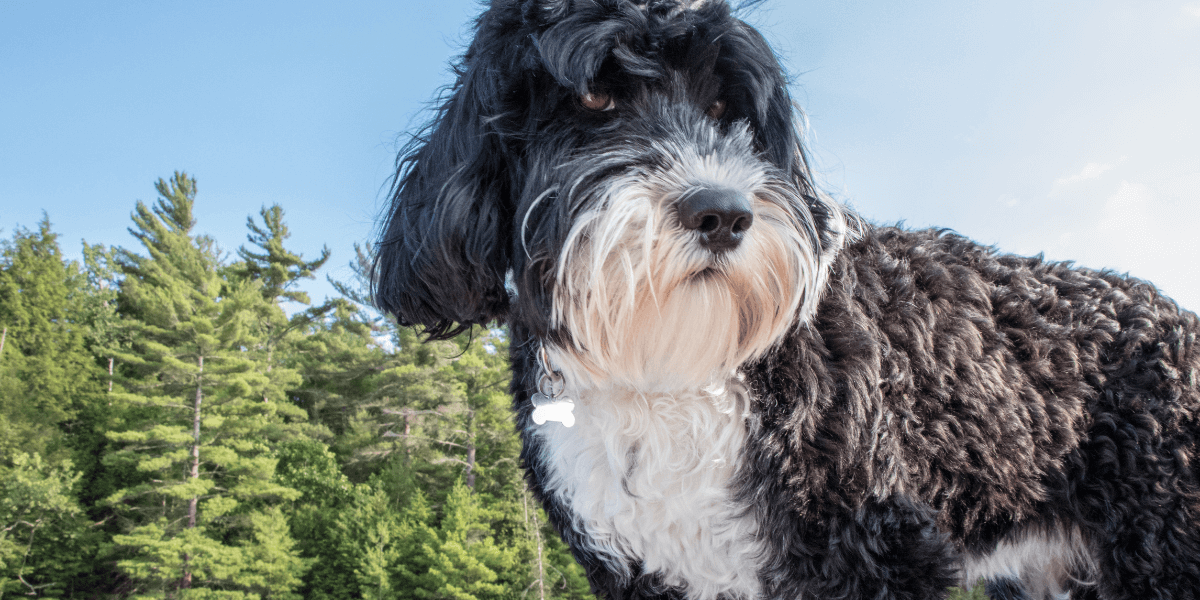
Portuguese Water Dogs need balanced nutrients for energy and health.
- Protein Requirements: Choose foods with at least 20% high-quality protein
- Healthy Fats: Include omega-3 and omega-6 for coat and skin health
- Carbohydrate Sources: Opt for complex carbs like sweet potatoes and brown rice
- Vitamins and Minerals: Ensure foods have essential vitamins and minerals
- Fiber Intake: Include fiber-rich foods for digestive health
- Water Intake: Provide fresh water at all times for hydration
- Calorie Needs: Adjust calorie intake based on age, size, and activity level
- Food Allergies: Be aware of potential food allergies and intolerances
2. Best Types of Dog Food
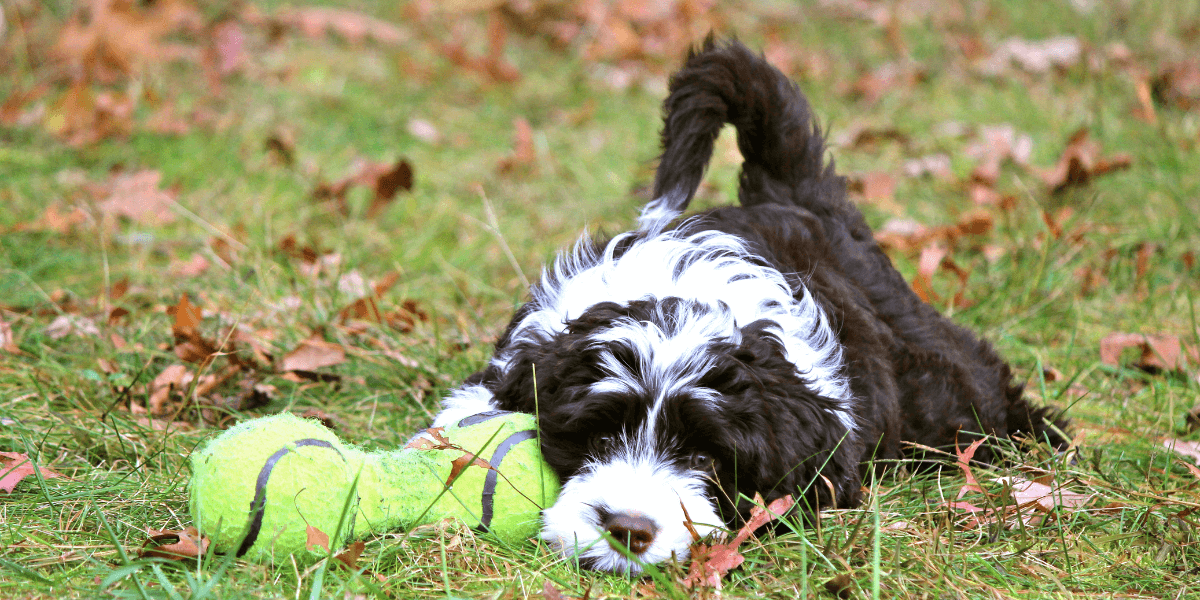
Choosing the right type of food is crucial for Portuguese Water Dogs.
- Dry Kibble: Offers convenience and dental benefits, choose high-quality brands
- Wet Food: Provides hydration and is ideal for picky eaters
- Raw Diet: Can offer natural nutrition but requires careful preparation
- Homemade Meals: Allows control over ingredients; consult a vet for balanced recipes
- Grain-Free Options: Suitable for dogs with grain sensitivities or allergies
- Limited Ingredient Diets: Ideal for managing food allergies or sensitivities
- Freeze-Dried Food: Preserves nutrients while providing a raw diet experience
- Puppy vs. Adult Food: Ensure the food matches your dog’s life stage
3. Recommended Ingredients

The best diet for Portuguese Water Dog includes nutrient-rich, high-quality foods.
- Lean Meats: Chicken, turkey, and lamb provide essential proteins
- Fish: Salmon and sardines are rich in omega-3 fatty acids
- Vegetables: Carrots, spinach, and pumpkin offer vitamins and fiber
- Fruits: Blueberries, apples, and bananas provide antioxidants
- Healthy Fats: Olive oil and flaxseed oil support coat and skin health
- Whole Grains: Brown rice and oats are good sources of energy
- Probiotics: Promote digestive health and boost the immune system
- Glucosamine and Chondroitin: Support joint health and mobility
4. Foods to Avoid
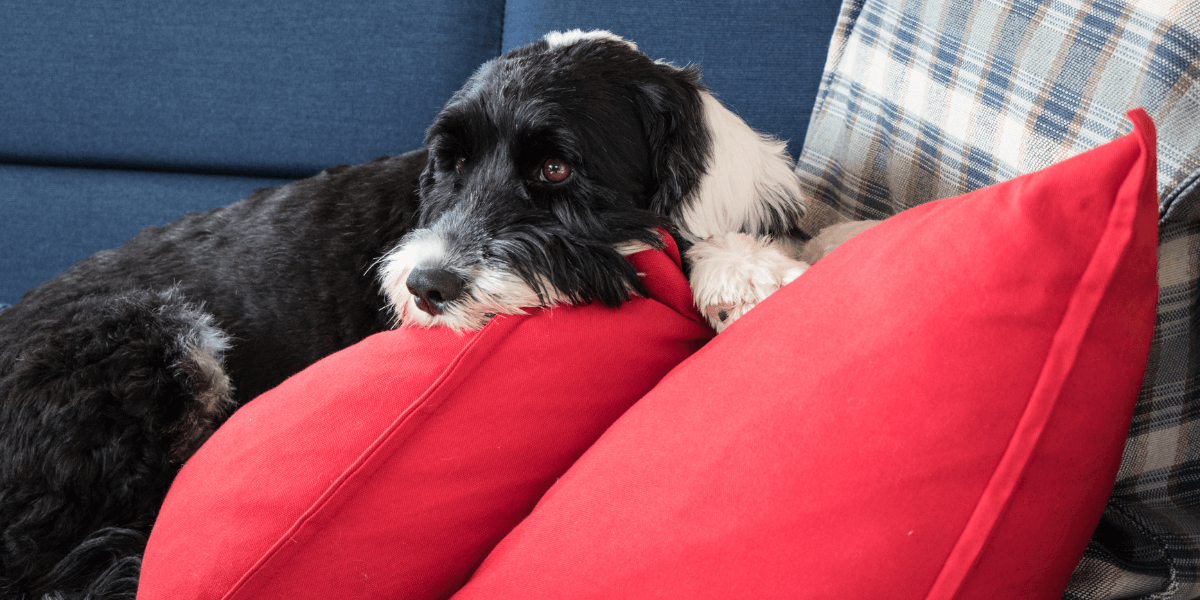
Certain foods can be harmful or toxic to Portuguese Water Dogs.
- Chocolate: Contains theobromine, which is toxic to dogs
- Grapes and Raisins: Can cause kidney failure in dogs
- Onions and Garlic: Damage red blood cells and cause anemia
- Xylitol: Found in sugar-free products, can lead to liver failure
- Alcohol: Toxic and can cause severe health issues
- Fatty Foods: High-fat foods can cause pancreatitis
- Bones: Cooked bones can splinter and cause internal injuries
- Raw Dough: Expands in the stomach and can cause bloat
Prevent joint issues in your Portuguese Water Dog by avoiding harmful foods – learn how to manage hip dysplasia in Great Danes.
5. Feeding Guidelines
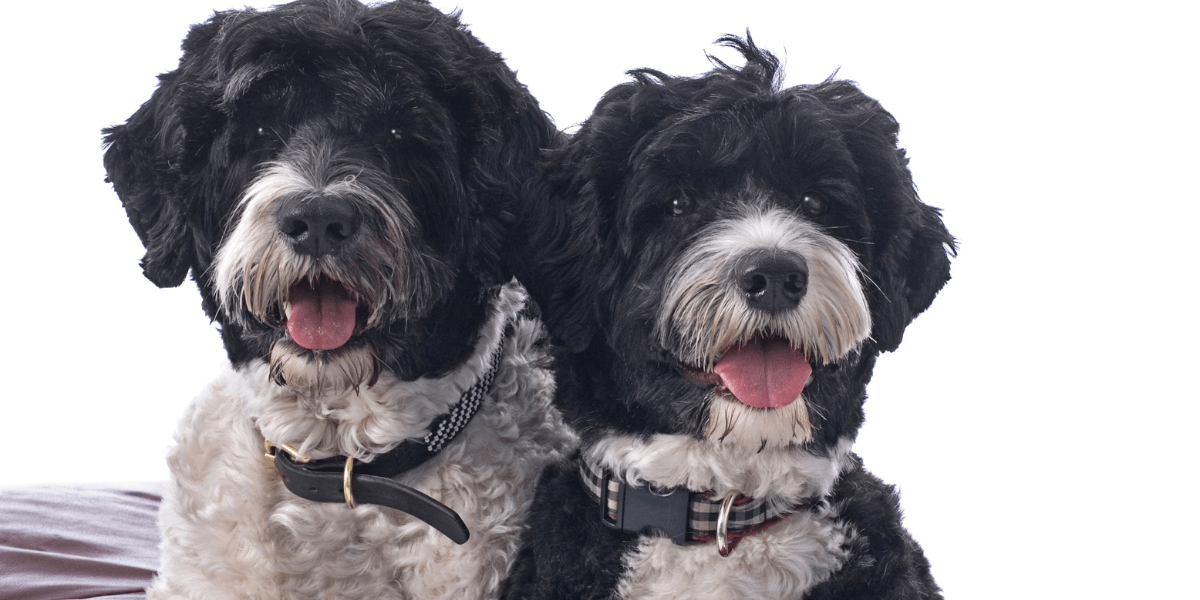
The best diet for Portuguese Water Dog includes proper portions and meal timing.
- Portion Control: Measure meals to prevent overfeeding
- Feeding Schedule: Feed twice a day to maintain energy levels
- Avoid Free Feeding: Scheduled meals help regulate weight
- Monitor Weight: Regularly check your dog’s weight for changes
- Adjust for Age: Modify portions as your dog ages
- Slow Feeders: Use slow feeders to prevent gulping and reduce bloat risk
- Avoid Table Scraps: Human food can disrupt balanced nutrition
- Water Access: Always provide access to fresh, clean water
6. Supplements for Portuguese Water Dogs
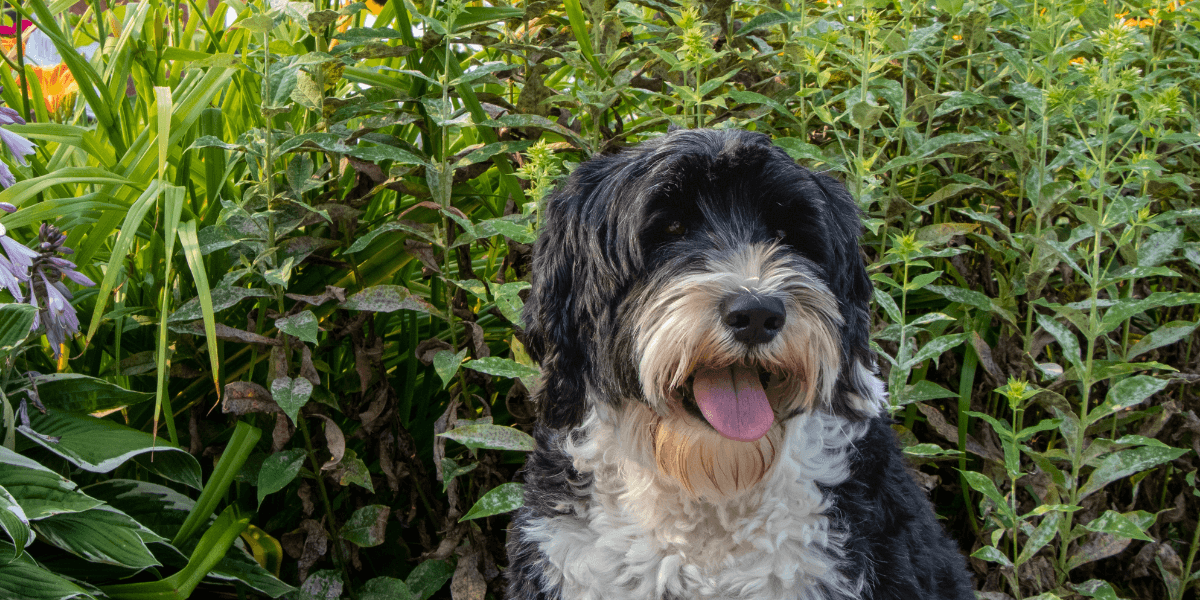
Supplements can support your dog’s diet and health.
- Omega-3 Fatty Acids: Improve coat health and reduce inflammation
- Glucosamine: Supports joint health and mobility
- Probiotics: Enhance digestion and support the immune system
- Multivitamins: Fill any nutritional gaps in your dog’s diet
- Antioxidants: Protect cells from damage and support overall health
- Digestive Enzymes: Aid in food breakdown and nutrient absorption
- Calcium and Phosphorus: Strengthen bones and teeth
- L-carnitine: Supports healthy metabolism and weight management
Boost your Portuguese Water Dog’s health with the right supplements – check this guide to Great Dane nutrition.
7. Special Dietary Considerations

The best Diet for Portuguese Water Dogs depends on their unique needs and lifestyle.
- Puppy Nutrition: Puppies need more protein and calories for growth
- Senior Dogs: Older dogs may require lower-calorie, joint-supporting foods
- Active Dogs: Highly active dogs need higher calorie and protein intake
- Weight Management: Opt for lower-calorie foods if your dog is overweight
- Allergy Management: Use limited ingredient or hypoallergenic diets
- Dental Health: Choose foods that support dental health and reduce plaque
- Sensitive Stomach: Consider foods formulated for sensitive digestion
- Pregnant or Nursing Dogs: Provide extra calories and nutrients
Understand your Portuguese Water Dog’s dietary needs by exploring Great Dane health issues every owner should know.
FAQs
1. What is the best food for a Portuguese Water Dog?
- High-quality dry kibble or wet food with balanced nutrients
2. Can Portuguese Water Dogs have grains in their diet?
- Yes, unless they have a specific grain allergy or sensitivity
3. How much should I feed my Portuguese Water Dog?
- Depends on age, size, and activity; consult your vet for guidance
4. Are supplements necessary for Portuguese Water Dogs?
- Not always, but they can help support overall health
5. How do I know if my dog has food allergies?
- Watch for signs like itching, vomiting, or digestive issues
6. Can I feed my dog homemade meals?
- Yes, but consult your vet to ensure balanced nutrition
7. Should I feed my dog raw food?
- Raw diets can be beneficial but require careful preparation
Conclusion
- Best Diet for Portuguese Water Dogs ensures they receive balanced nutrition every day
- Focus on proteins, healthy fats, complex carbs, and essential vitamins
- Avoid harmful foods like chocolate, grapes, and onions
- Follow feeding guidelines and monitor your dog's weight and health
- Consider supplements to support your dog’s specific health needs
- Always consult your vet for personalized dietary recommendations
